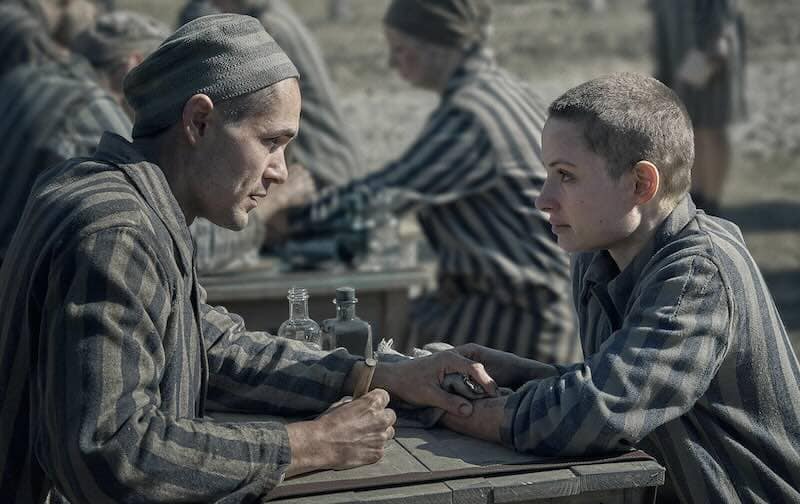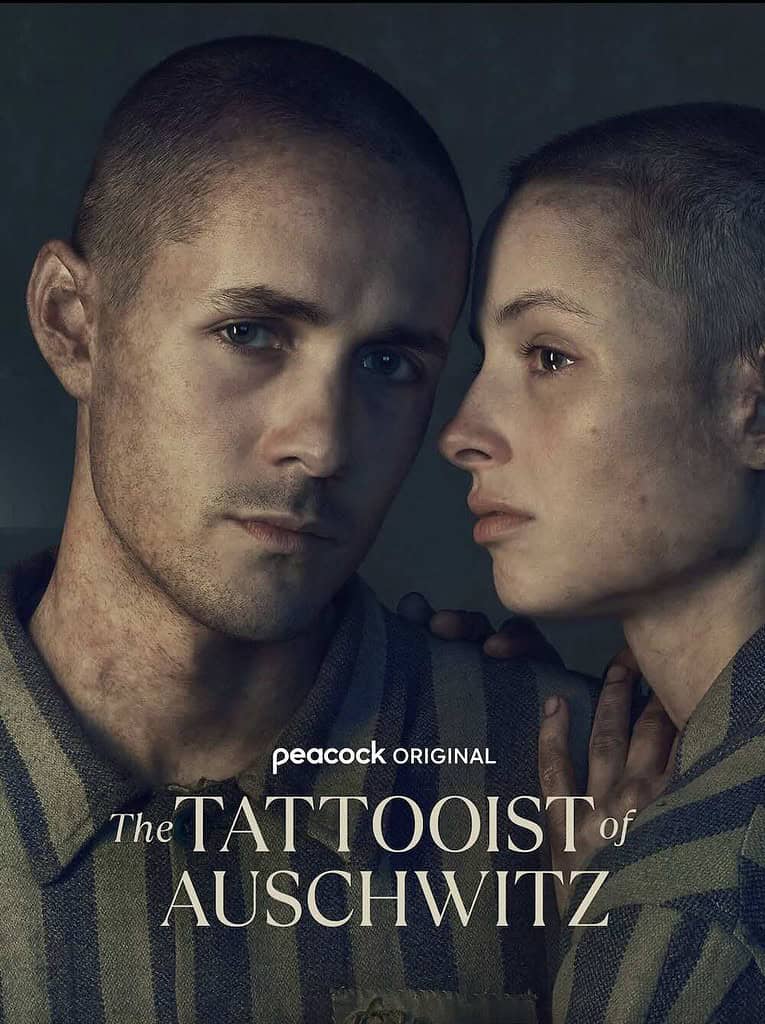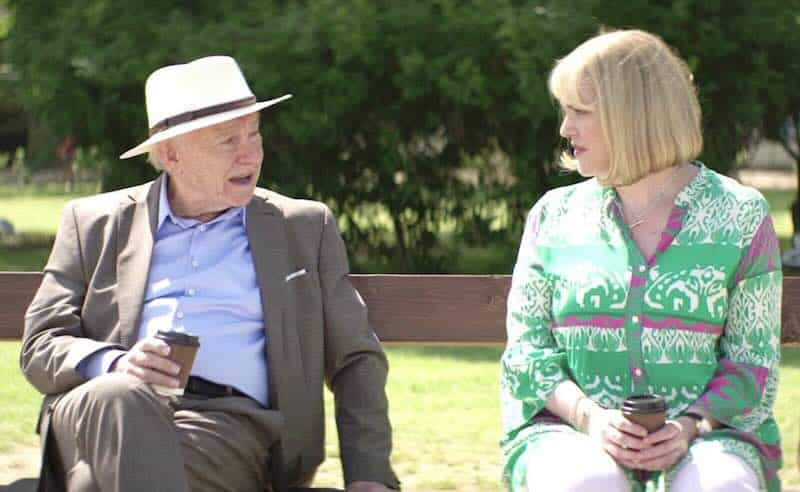The Tattooist of Auschwitz is Lali Sokolov’s story about love and survival in the Auschwitz-Birkenau concentration camp. As an old man, Lali told his story to Heather Morris. She made his memories into a book. This six part television series is based on the book.
The Tattooist of Auschwitz is told in two timelines. In Australia, Old Lali (Harvey Keitel) tells his story over many meetings to nurse and first time writer Heather Morris (Melanie Lynskey). Part of the series is about Heather’s responses and efforts in recording Lali’s memories.
The second timeline is in the 1940s when Germany murdered 6 million people in the Holocaust, over 1 million of them at Auschwitz alone.
When young Lali (Jonah Hauer-King) arrived in Auschwitz, he was pulled from the rest of the prisoners by SS Officer Baretzki (Jonas Nay). He was given the job of tattooing numbers on the arms of the prisoners as they arrived. Getting a job working for the SS was a life saver for Lali.

The series shows Lali and Gita (Anna Próchniak) meeting and falling in love when he tattooed her arm. According to this Time Magazine article laying out the facts of the story, their meeting couldn’t have happened that way. Men only tattooed men. The women were tattooed by women.
Despite whatever dramatic liberties were taken to make the series, the fact is Lali and Gita did meet and fall in love in a concentration camp. (Not long ago I reviewed another production called Nelly & Nadine about falling in love in a concentration camp.) When Lali began telling his story to Heather, his first words were, “This is a love story.”

The series was difficult to watch. Brutal, horrible, inhumane acts were committed by the Nazis in every scene at the camp. With the help of SS Officer Baretzki, lots of bribes, and dogged determination Lali and Gita managed to see each other on occasion in the camp.
The episodes were studded with haunting images of faces representing the men, women, and children lost at Auschwitz. The hauntingly beautiful Barbra Streisand song that played over the credits at the end amplified the emotional impact.
The horrors of that time never left Lali and Gita. In the retelling of his story, Lali relived the emotions with clarity. He often felt like soldiers and others were there in the room with him.
Tali Shalom Ezer directed. She allowed space in the story, moving it slowly and carefully through the horrific tale. Yes, it was slow paced, but the subject matter was so heavy it needed processing time. Breaking it into current and past timelines helped with that as well.
It’s been around 80 years since World War Two. The Nazis have been trying to regain the upper hand ever since it ended. Sitting with this series is a good reminder of what can happen if Nazis take power. It isn’t an easy watch, but it’s a worthwhile one.
The series is streaming on Peacock.
Discover more from Old Ain't Dead
Subscribe to get the latest posts sent to your email.
